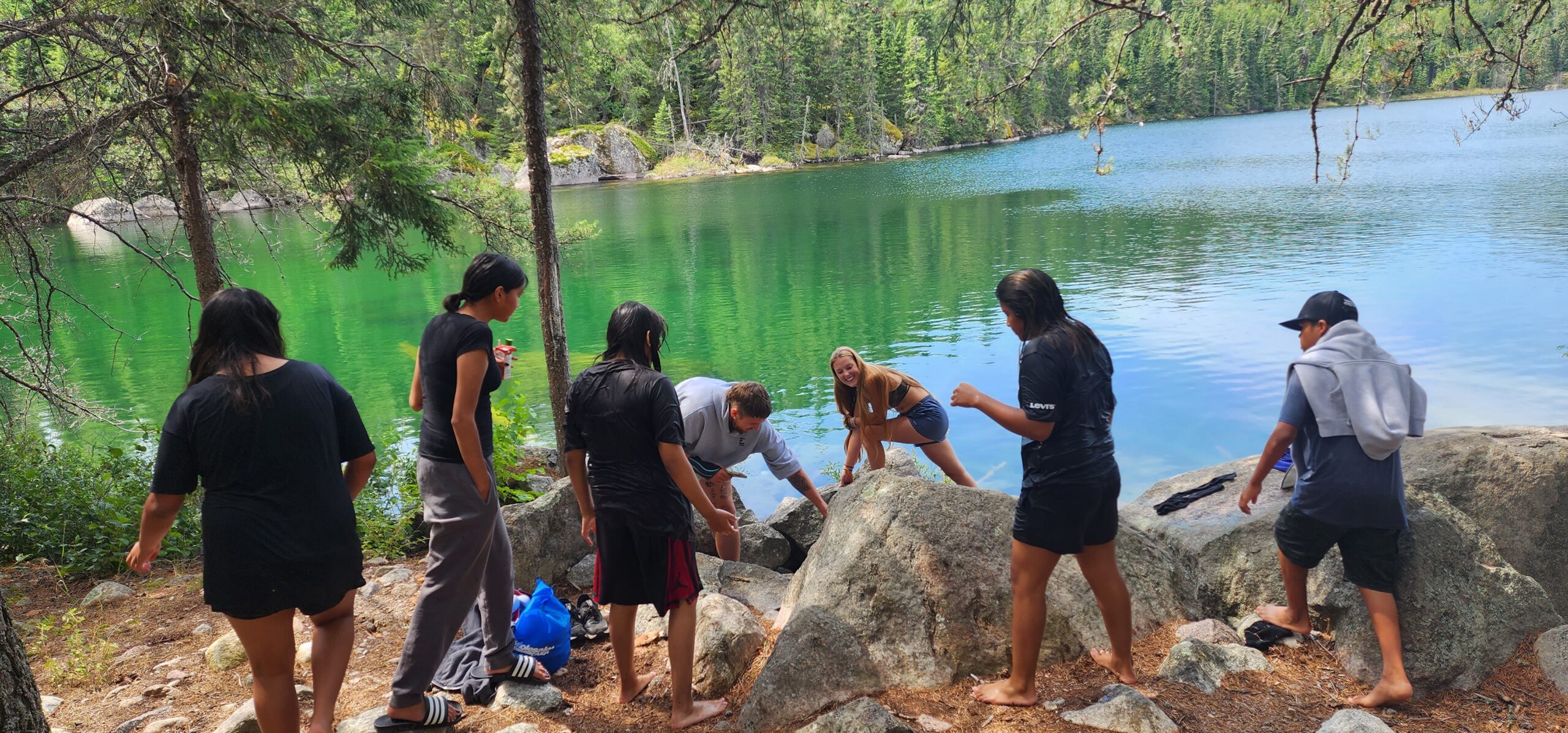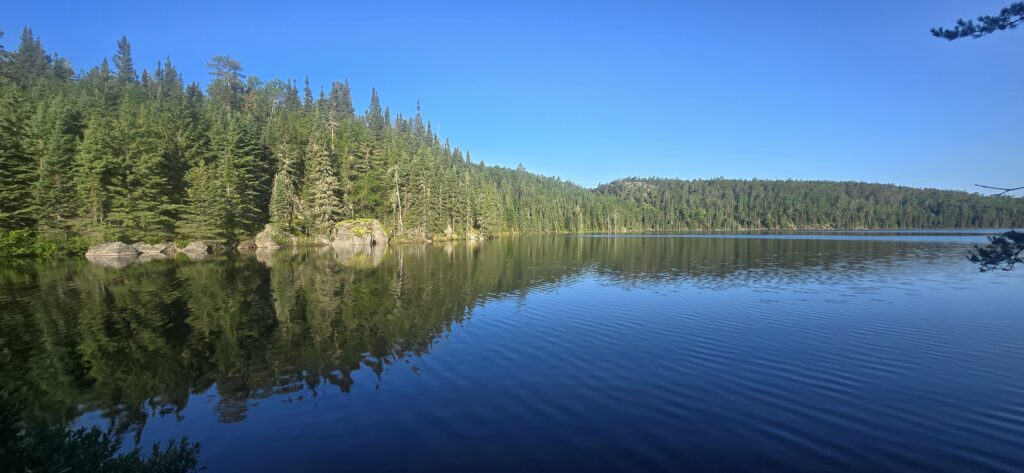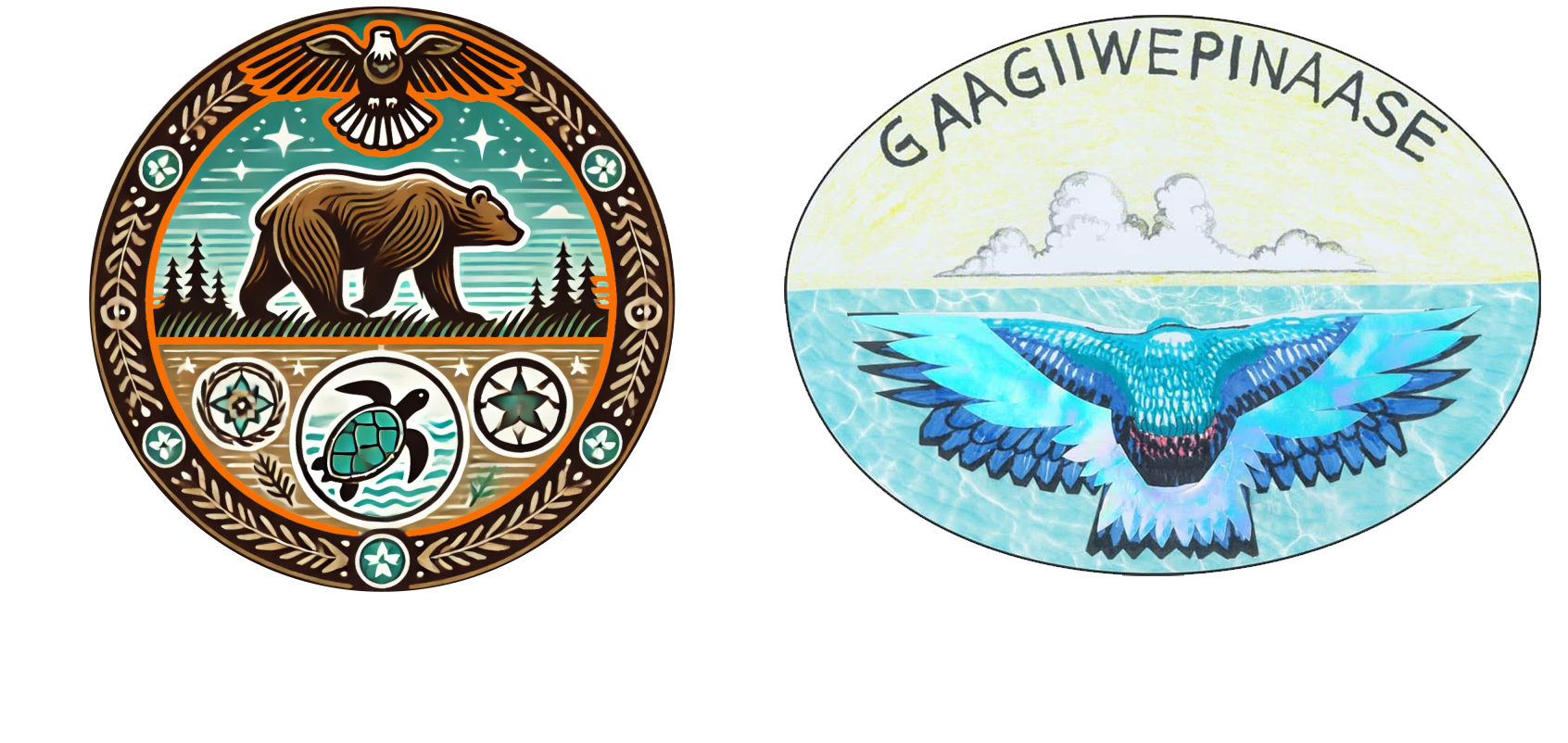Our Story: Healing in the Heart of Grassy Narrows
Grassy Narrows First Nation, also known as Asusubpeeschoseewagong Anishinabek, is a community with a rich and resilient history. For thousands of years, our people have lived in harmony with the land, practicing sustainable hunting, fishing, trapping, and harvesting wild foods like blueberries, wild rice, and medicines. These traditions, which embody both our spirituality and livelihood, have been passed down through generations and remain a vital part of who we are today.


History: Uprooted from Our Land
In the 1960s, our community was coerced by the Canadian government into relocating from our traditional territory along the wide, flowing rivers to a reserve near Kenora, Ontario. This forced relocation was part of a broader effort by colonial authorities to control Indigenous peoples and break their ties to the land. Our people were told that moving to the new reserve was the only way we could have a school for our children in our own community.
The new reserve, however, was on a small, stagnant lake, far from the rivers we depended upon for fishing, hunting, and gathering food. The land was not suitable for growing crops, and the houses were built in a European style—too close together, with no regard for our traditional social norms. Many homes lacked access to clean water, and the soil was too poor for kitchen gardens. Families were separated from the land and from each other, undermining the kinship and community structures that had sustained us for generations.
This forced relocation, coupled with environmental destruction caused by mercury contamination from a nearby paper mill and large-scale logging on our lands, devastated our economy, culture, and wellbeing. Our people, once self-sufficient and thriving, suddenly faced unemployment, food insecurity, and a rising mental health crisis as traditional ways of life were disrupted.
Our Mission: Culturally Sensitive, Holistic Care
At Grassy Narrows Mental Health Services, we honor both our history and our vision for the future. Our mission is to provide compassionate, culturally sensitive mental health services to the adults of Grassy Narrows that reflect the unique needs of our community. We believe in healing the whole person—addressing the mind, body, spirit, and environment in our approach to care.
Our services combine Ojibwe traditional healing practices with modern mental health care. By integrating traditional knowledge and spirituality with contemporary therapeutic techniques, we aim to create a healing space where everyone in our community feels understood, valued, and supported.
Our Vision: A Healthier Future for Grassy Narrows
We envision a future where every member of our community has the support they need to live with dignity, purpose, and hope. A future where mental health care is not just accessible but also deeply connected to the traditions and values of our ancestors. We strive to reduce the stigma around mental health and create pathways for healing that are rooted in both our cultural heritage and modern advancements in mental health treatment.
By fostering resilience, promoting education, and providing sustainable, long-term care, we aim to create a stronger, healthier Grassy Narrows for generations to come.
A Community-Centered Approach
Rebuilding trust between our community and health service providers is at the heart of our strategy. We work closely with community leaders, elders, and mental health professionals to ensure that the services we provide are accessible and respectful of our cultural identity. Community empowerment is a cornerstone of our work—we believe that healing comes not just from receiving care but from active involvement in shaping the care we receive.
Guiding Values:
Cultural Respect:
We honor and protect the traditions, beliefs, and practices of our community.
Holistic Healing:
We address the mental, physical, spiritual, and emotional needs of our people.
Empowerment:
We foster a sense of ownership in our community, encouraging members to take an active role in their wellbeing.
